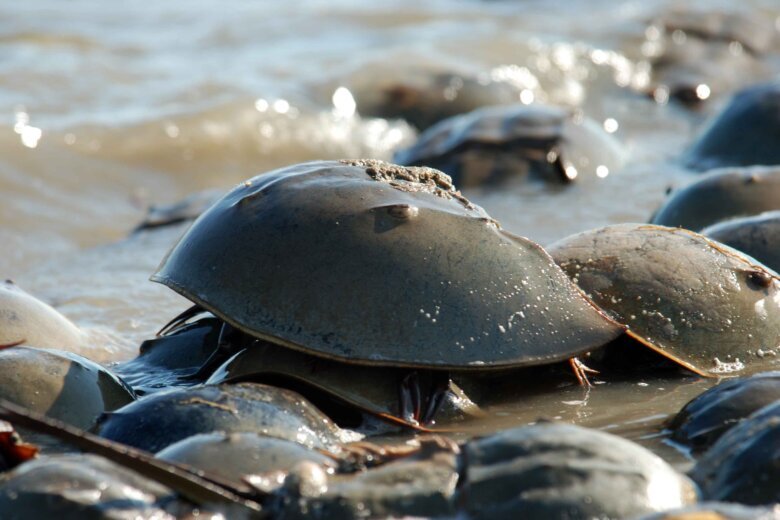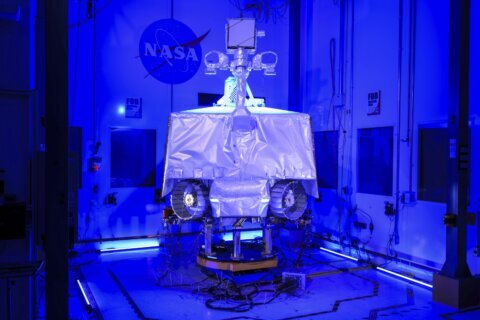
When you walk down the beach and see the brown, armored shell of a horseshoe crab, with its 10 eyes and spiked tail, it’s like looking at a living fossil. Now 23 conservation groups are concerned the ancient creatures are disappearing from Atlantic shores.
The National Oceanic and Atmospheric Administration has been petitioned to add the American horseshoe crab as an endangered species under the Endangered Species Act.
Despite their intimidating appearance, horseshoe crabs are harmless to humans. Each spring, along the Atlantic and Gulf coasts, horseshoe crabs lay their eggs to spawn.
Nearly twice as old as dinosaurs, American horseshoe crabs are thought to have lived 450 million years. However, in the past three decades, horseshoe crab populations have declined by two-thirds.
Horseshoe crabs are harvested for use as bait by commercial whelk and eel fisheries.
In addition, biomedical companies harvest horseshoe crabs and drain their blue blood, which is used to detect toxins in drugs and medical devices. Sensitive tests, using crab blood, are thought to be the gold standard in determining whether something is sterile.
According to the conservancy groups, horseshoe crab blood harvests have doubled since 2017.
“We’re wiping out one of the world’s oldest and toughest creatures,” said Will Harlan, a senior scientist at the Center for Biological Diversity. “Horseshoe crabs have saved countless human lives, and now we should return the favor.”
Synthetic alternatives to horseshoe crab blood tests are already being used in Europe, but U.S. drug companies have been slow to adopt the alternatives, according to the petitioning groups.
Get breaking news and daily headlines delivered to your email inbox by signing up here.
© 2024 WTOP. All Rights Reserved. This website is not intended for users located within the European Economic Area.









